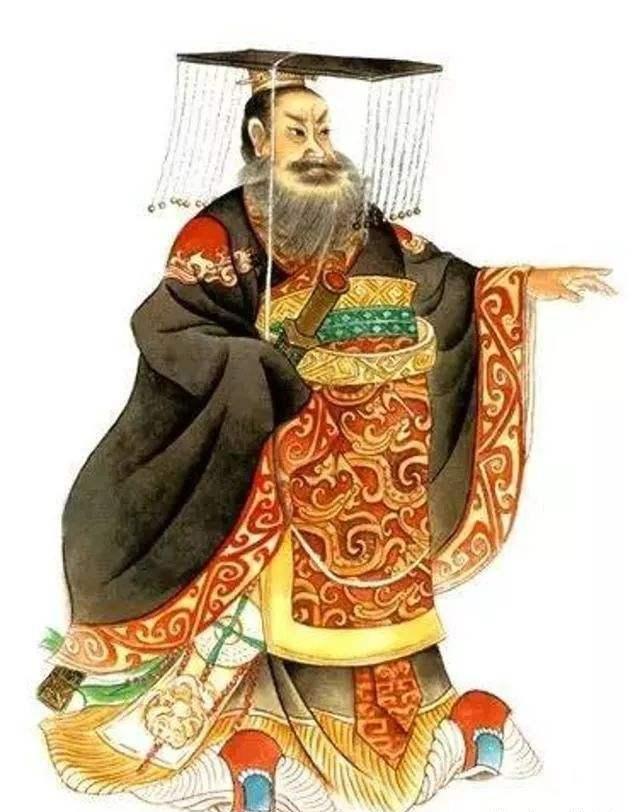
According to the National Defense University Press's "History of Chinese Emperors", from the unification of China by Qin Shi Huang to the overthrow of xuanun in the Qing Dynasty, China's feudal society experienced a total of 352 emperors, of which 146 emperors of unified dynasties. There were 206 emperors during the division period, mainly during the Three Kingdoms, the Southern and Northern Dynasties, and the Five Dynasties and Ten Kingdoms period. If you add the kings, dukes, and hou of the Eastern and Western Zhou Dynasties and the Spring and Autumn and Warring States periods that lasted 840 years before Qin Shi Huang, there are even more, and there are a total of 121 kings, 217 princes, and 23 marquises. If you include the 60 emperors of the Shang Dynasty and the Xia Dynasty before the Zhou Dynasty, there should be 829 Chinese emperors.
颛顼 (pronounced zhuān xū), of the Gaoyang clan
Emperor: (pronounced kù) Gao Xinshi
Yi - Han Hun: pronounced zhuó, yi: wet.
Emperor: Yin jiōng, Yi: Portal.
ሤ: 音guǐ (third sound), 義: the tenth place of tiangan, used as a pronoun for the tenth order.
Yi (pronounced yì, righteousness: virtue is beautiful)
Wang Yuan: Yin jiān, ancient tong "difficult".
Youwang Gong 湼: Yin niè, righteousness, same as "nirvana".
Gu Gong (pronounced dǎn, righteousness, reality, sincerity, faith) Father (Tai Wang)
Huiwang Lang: Sound làng, righteousness, the appearance of the high door, empty, no water trench.
Emperor Liu of the Yuan Dynasty: Yin shì. Righteousness, prosperity.
Emperor Cheng: Yin ào. Righteousness, Maxima.
Pingdi Liu Yan: Yin kàn, has the meaning of happiness.
Emperor Zhang: Yin dá, righteousness, fire, explosion.
And Emperor Liu Zhao: pronounced zhào, righteousness, beginning, initiation, initiation.
Emperor An Di Liu Hu: Yin hù, meaning "fu", do not pronounce it as gu.
Emperor Liu Ofe: Pronounced zuǎn, it is easy to be pronounced as zàn, righteousness, and jiye.
Emperor Cao Of Wei: Pronounced ruì, it has the meaning of "deep understanding and communication".
ChangdaoXiang Gong Cao Yi: Yin huàn, righteousness, grand, numerous.
Sima Ye: Yin yè. Yi was one of the cities in the Wei and Jin dynasties.
Mu Di Sima Tan: Pronounced dān, righteousness, the meaning of ears growing.
Emperor Xiaowu Sima Yao: Yin yào, righteousness, illumination; bright, the sun, moon, and stars are all called "Yao", and the seven stars of the sun, moon, fire, water, wood, gold, and earth are collectively called "Seven Yao", which were used in the old days to call the seven days of a week, such as "Sun Yao Day" is Sunday, "Moon Yao Day" is Monday, and so on.
Former Liang Gaozu ZhaoWang Zhang Yi: Pronounced shí, the same as "real", has the meaning of "place, this".
Former Yan Taizu Civilization Emperor Murong Hao: Yin huàng, used only for personal names.
Former Yan Jingzhao Emperor Murong Juan: pronounced jùn, meaning superior in intelligence.
Former Yan You Emperor Murong Wei: Pronounced wěi, describing the appearance of light flourishing.
Wuzhao Emperor Yao Cang: Yin cháng, an ancient plant.
Zhaowu Wang Li Xuan: pronounced gǎo, or pronounced hào. Pronounce gǎo to describe "bright, bright", pronounce hào with "hao".
Li Xin: Yin xīn, righteousness, love, envy; 飨, during the sacrifice, the gods enjoy sacrifices and incense.
Southern Dynasty Song Taizong Ming Emperor Liu Yu: Yin yù, described as a literary talent.
Southern Dynasty Qiwu Emperor Xiao Zhao: Yin zé, has a profound meaning.
Southern Dynasty Qi Ming Emperor Xiao Luan: Yin Luán, Yi, legendary phoenix bird of the kind.
Northern Zhou Xiaoyi: pronounced mǐn righteousness, with "mercy".
Northern Zhou Wu Emperor Yuwen Yong: Yin yōng, there is a harmonious meaning, do not read Chengyi.
Northern Zhou Xuan Emperor Yuwen Yun: Yin yūn, has the meaning of "beautiful", mostly used in personal names, do not pronounce it as "bin".
Emperor Gong Yang You: Yin yòu, Righteousness, Mutual Help.
Wu Cao: Yin zhào, only Wu Zetian has used it alone.
Yizong Li 漼: pronounced cuǐ or cuī, describes the depth of water.
Emperor Li Ofe: Pronounced xuān, describes "intelligent and agile".
Zhaozong Li Ye: Yin yè, describing the appearance of the fire light is very bright and grand.
Emperor Li of Sorrow: pronounced zhù, homophonous with "zhu".
Later Tang Zhuangzong Li Cunxun: pronounced xù, meaning diligent, don't pronounce it as "help".
Southern Tang Emperor Li Fu: Yin biàn, meaning light, ancient with "忭", the meaning of joy.
Southern Han Zhongzong Liu Sheng: Yin shèng, meaning bright and exuberant.
Southern Han Dynasty Lord Liu Xun: Yin chǎng, meaning sharp.
Southern Song Dynasty Xiaozong Zhao Xiao: Pronounced shèn, there is the meaning of "caution", the ancient same as "cautious".
Southern Song Dynasty Emperor Zhao Yu: Yin qí.
Southern Song Dynasty Ruizong Zhao Fu: Yin xià, is the ancient word for "Xia", which means "straight".
Xiangxing Emperor Zhao Fu: Pronounced bǐng, meaning "bright, bright".
The last emperor Li Wei: yin xiàn, eyelids, eyes do not dare to open the look.
Huidi Jianwen Emperor Yunjiao: Yin wén, righteousness, a slight fire without flames.
Emperor Xiaozong Hongzhi Zhu Youzhi:yinchēng, reigned for 18 years.
Sejong Jiajing Emperor Zhu Houxi: pronounced zǒng, also pronounced cōng. When zǒng is pronounced, it has the meaning of torch.
Emperor Muzong Longqing Zhu Zaiyu: Yin hòu, Tonghou.
Sejong Yongzheng Emperor Yinchen: Pronounced zhēn, the meaning of sincerely touching the gods and being blessed.
Emperor Renzong Jiaqing: yin yóng yǎn,
Emperor Wenzong Xianfeng Yixuan: Pronounced zhǔ, the meaning of wisdom, also pronounced nuò.
Emperor Dezong Guangxu Zai xiang: Pronounced tián, describing the calm water surface.